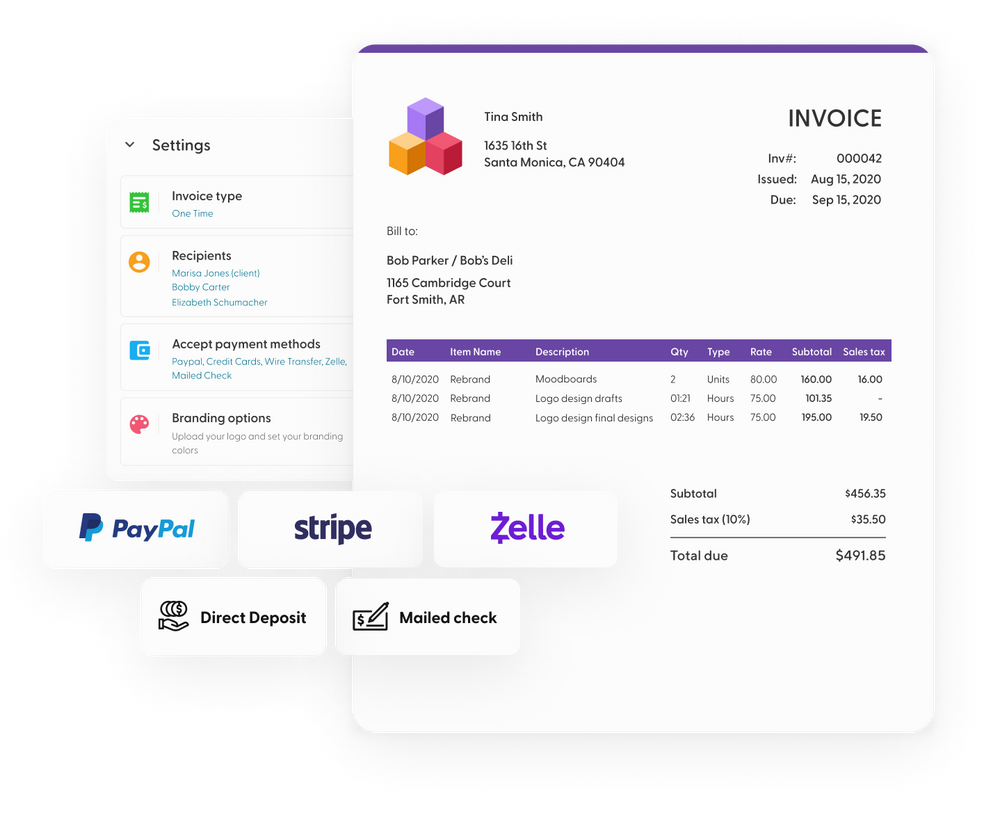The Internet has made it easy for many to turn into freelance writing. From SEO writing to ghostwriting books, more and more clients see the importance of good content in business strategies and are constantly on the lookout for freelance writers.
But greater copywriting opportunities do not necessarily translate to better rates.
Freelance writing rates are full of grey areas, with the oversaturated market playing a major role.
The thing is, freelance writers may have a knack for words but, unfortunately, lack the know-how in demanding the fees they are truly worth.
What is a suitable rate?
That is completely up to the freelancer. Good and bad prices are everywhere, and there is always a writer who will agree to take on the project no matter the price point. In those cases, freelance writers often blame clients, whereas, in reality, they are the ones influencing the market and pay scale.
Knowing your worth, along a winning portfolio, is the starting point of any working relationship.
Sure, negotiating isn't always as straightforward. We get it. However, this article will guide you, the freelance writer, to get the fee you deserve.
Good or bad freelance rates, what will you settle on?
Rates will always vary. Not just for freelancers but in the marketplace. Hence, studying your field is of utmost importance.
We cannot stress this more. A smart freelancer stays up to date with the changes in the market and online writing trends. As online content is growing in demand, freelance writers are gaining the upper hand. That is if they know how to use it.
Yes, it is tough-talking about money. But start with the basics, your expertise and CV, and the process will become smoother. The more experience you have, the more you can bargain.
Image source: https://www.clearvoice.com/blog/how-much-to-pay-a-freelance-writer/
Determine your lowest rate
What are you willing to get paid? Think about all the factors that will influence the amount you should ask—starting with your résumé.
Years of experience in the writing business is a big factor when negotiating your rate. Skill will always win, but even then, sometimes clients want to cut corners. That is why you should always leave wiggle room. Know your north and south pole, your maximum and minimum fee.
Determining the lowest acceptable rate will keep you on the profit margin. Never accept jobs that pay you less than you deserve. By working on non-profitable projects, you lose valuable time you could have spent on better-paying gigs.
Ensure you have figured out your fee for all the different types of freelance writing rates:
- By the word
- By hour
- By project
- By the page
- Ongoing work
Other considerations to take into account before you create your invoice:
- Weigh in your living costs and general expenses. Work out how much you need to earn to live comfortably.
- Consider where you and the client are based. Certain areas pay higher rates than others.
- Do you keep the rights to the work?
- Does the client offer a high-volume work relationship?
Which is better: Per hour or fixed-price?
A survey found that 60% of freelance writers accept whatever payment clients offer—only 12% charge per hour, 12% per word, and 16% by the project.
Whether you charge per hour or quote a fixed price, you need to earn for the amount of time spent on a project on the whole. The majority of freelance writing jobs require extensive research likely to be overlooked when producing a quote.
Think of it like this:
If you get paid $50 for an article that should technically take an hour to write, you earn $50 per hour. So now, you need to allow for additional research that adds another hour to the job, cutting your hourly paycheck in half.
Image source: https://www.clearvoice.com/blog/how-much-to-pay-a-freelance-writer/
The downfall with charging comes into play when you grow from a beginner to a more experienced writer. Suddenly, you work faster and churn out work to the client's benefit. And getting to know the ins and outs of a brand and its tone of voice will shave off valuable minutes. Here charging a fixed price will make more sense.
Fixed prices include all the time necessary to complete the job. You need to understand how many hours you will need for research, write the article, have back-and-forths with the client, and implement revisions. Then, take the number of hours and multiply it with your fee to give you the fixed price to present to the client.
What about per word?
The same thinking applies. Understand what you want to earn versus how much time it takes you to write an article. If you wish to earn $50 per hour and write 1000 words in that space of time, you will look at $0.05 per word.
Industry-standard rates vary for different types of writing and editing services. Blog and ghostwriting are the most common types of content produced and known to pay per word.
Image source: https://leavingworkbehind.com/how-much-should-freelance-writers-charge-per-word/
Pay per word could count in your favor if you are a fast worker, but it often does not include revisions. The image above outlines what writers should charge per word according to their skill level in 2017.
A more recent study by the Editorial Freelance Association provides a more comprehensive outlook and higher rates.
How to calculate freelance rates
The top contenders in calculating your freelance rates are:
- Experience
- How much time each project takes
However, remember that you need to take the entire project into account. We discussed it before. Consider every element, from much-needed research to running the article through writing assistant software, before giving your quote.
Now let's focus on the different freelance writing rates. When bidding for a job, strive to stay true to your skill level to avoid disappointment. Here are the most common freelance writing rates:
- By the word: Desired hourly rate and amount of words you can write in an hour.
- By the hour: What you desire to earn based on your writing experience.
- By the project: Amount of hours each project takes x your hourly fee.
- By the page: Average count of words per page (250) x rate per word.
- Ongoing work: Consider how much you need to cover your monthly expenses or the pay rate of other freelance writers in your market.
What Do Other Freelance Writers Earn in Your Market
The market is broad, and it is hard to pinpoint, but there are some great tools to assist you in figuring out your earning potential.
Image source: https://www.payscale.com/research/US/Job=Freelance_Writer/Hourly_Rate
Start by knowing your worth, and the paycheck will follow.
Image source: https://www.glassdoor.com/Salaries/know-your-worth.htm
Refine your rate on your client's expectation
Forget about your writing skills for a moment and think about where you rank in understanding your client.
To negotiate like a pro, you need to understand the psychology behind it. You are making a business deal, one that needs to work for both parties involved.
Be observant of your client and their expectations. Ask about previous projects and make your choice accordingly. If you know a higher amount is going to scare the client off, just charge your per word rate.
Besides, no client will accept a quote if they earn less per hour than you.
Often you can earn more per word than the client anticipates. Be smart and consider your options before choosing how to quote.
Tactics to ask for the rate you deserve
Finding a high-paying job is a matter of skills. A good portfolio or proposal document can get you ahead of your competitors.
If you want to earn more, ensure you step up to the job. A client will only drop money if they know you will deliver expert writing and high-quality work.
Here is a list of tactics you can use to maintain the upper hand:
- Try the TEA Method
In short: Thank, Explain, Ask. Use the TEA method to describe your experience. Discuss how it influences the job to support the rate you are proposing.
- Charge Per
Consider what will work for you and the client best. Sometimes a per-project rate looks scary and will spike budget queries in the client's mind.
- Ask the Client Their Budget
Know what you are in for and adjust your quote accordingly. If the budget is too low, walk away. Wasting your time on a low-paying client can hurt your financial growth.
- Aim for the Stars
Always go in with what you ideally want to earn. This is negotiation 101.
- Leave Space to Breathe
Understand your maximum and minimum rates per project and which factors to incorporate into your decision. You want the client to find you in the sweet middle.
- Consider the Outcomes Together
Agreeing on the outcomes will indicate the budget and what you can charge.
Negotiate other aspects of the project.
Getting your desired rate is not always possible. Yet, there are some ways around that.
For example, negotiate the terms that will make the project more enjoyable.
- What Does the Project Entail
Ask about the project scope. Be specific to what is required and what you are willing to do at the set rate. If the client also wants images, they need to consider a higher fee.
- Expecting too Much for too Little
Defining a realistic length for the amount offered is essential. You can argue that a 1000 word article makes more sense for the topic and cash at hand.
- Priority Comes at a Price
Make space to accommodate other clients. You don't want to turn down a higher-earning job because of a lower-paying project's deadline. Work this into your negotiation strategy.
- Do you Retain the Rights?
Are you on a writing gig that has a monetary return for the client? If so, especially when ghostwriting, you need to know you're not getting ripped off. If the payment doesn’t match signing your rights away, be respectful and honest, and walk onto another lead.
Go out and get the rate you want
Good negotiation skills give you confidence as a freelance writer and businessperson. Just hear us out again: That is 100% what you are, a businessperson.
So, whatever the client brings forward, you know what you offer in return. Look after your future and brand by understanding your worth in the market.
Managing your finances starts with negotiating your rates. After that, it is the tools you use to make life easier. Time is money, and whether you are writing or invoicing, make sure you account for it.
An all-in-one project management solution like Indy will level up your freelancing career. With Indy, you can manage your entire workflow in one platform for one price.
Create your invoice template today.



